I turned away from last week’s Economist, with its haunting cover of Trump’s lipstick kiss on Putin’s cheek, to page 10 of our local newspaper, Le Resistant.
Unlike most of today’s news outlets, Le Resistant doesn’t live on bad news. Of course there are the usual reports of burglaries, fires and accidents, but most of the stories are about people who don’t groan much about the world because they’re busy doing something about it.
Like the tiny village down the hill, where the mayor sponsored a drive to set up a young woman in her own vegetable growing business; 200 people showed up to discover her farm and attend a conference on jump-starting local initiatives. Or the wheat farmer who holds open house to demonstrate bread making with the indigenous Red Wheat of Bordeaux, an heirloom variety adapted over centuries to this climate (naturally low in gluten and resistant to pests as well as drought). Or the miniscule hamlet just across the river, where a local astro-physicist hosts university level debates that are more popular than bingo. And all summer long there is the “Petit Marché” an evening market of our most local producers (vegetables, cheeses, soaps, artisanal beers, breads, crafts, plants, honey) who not only sell their wares, but offer a place for locals to sit and gather and – talk.
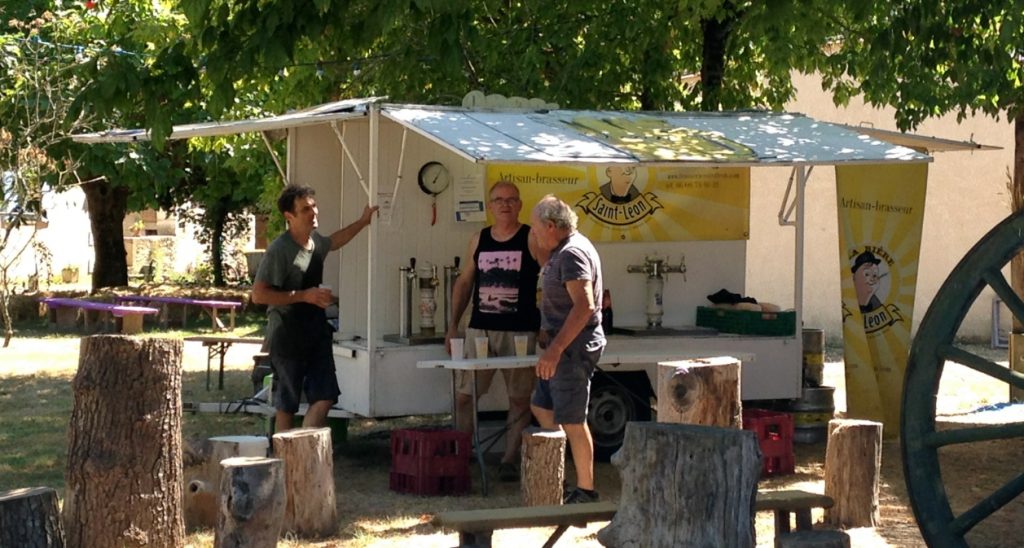
Gatherings and learnings. Le Resistant is full of stories of “les Alliances Locales”.
The list makes me think of my grandparent’s days when know-how was at everyone’s fingertips. Within a half hour radius you can:
learn to construct a yurt (like barn raising – do the prep in advance and invite your friends to put it in place;
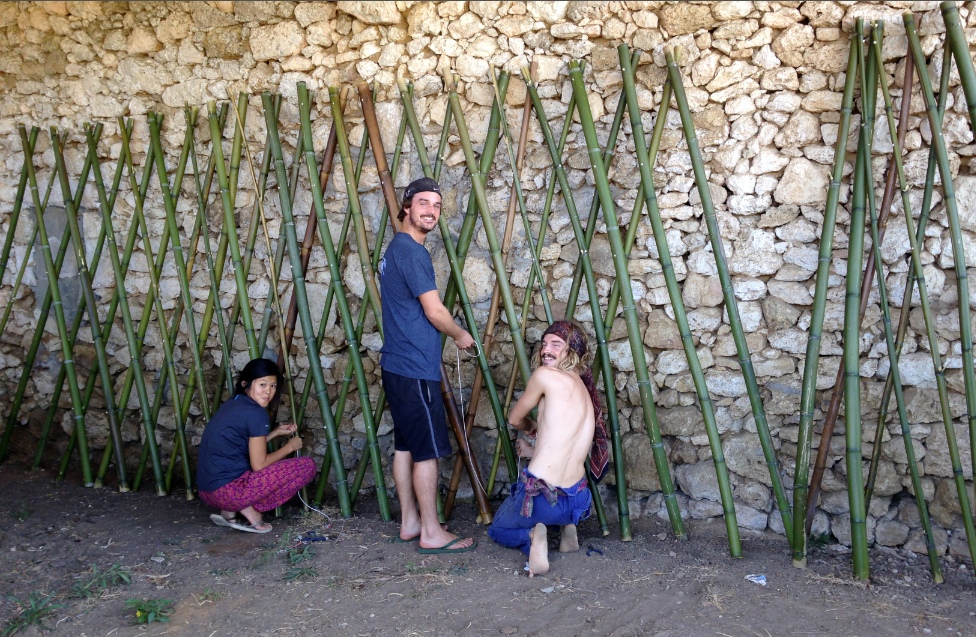
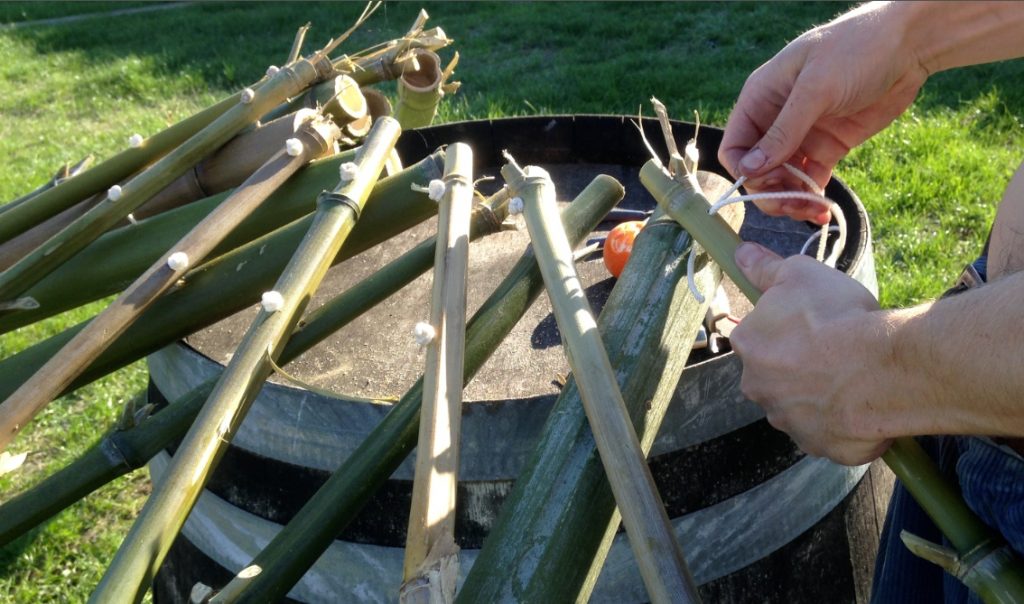
build a rainwater catchment to reduce your water bills; compost your kitchen waste; make your own purins – natural remedies for plants and trees; learn to raise chickens; grow edible mushrooms in a log in your backyard;
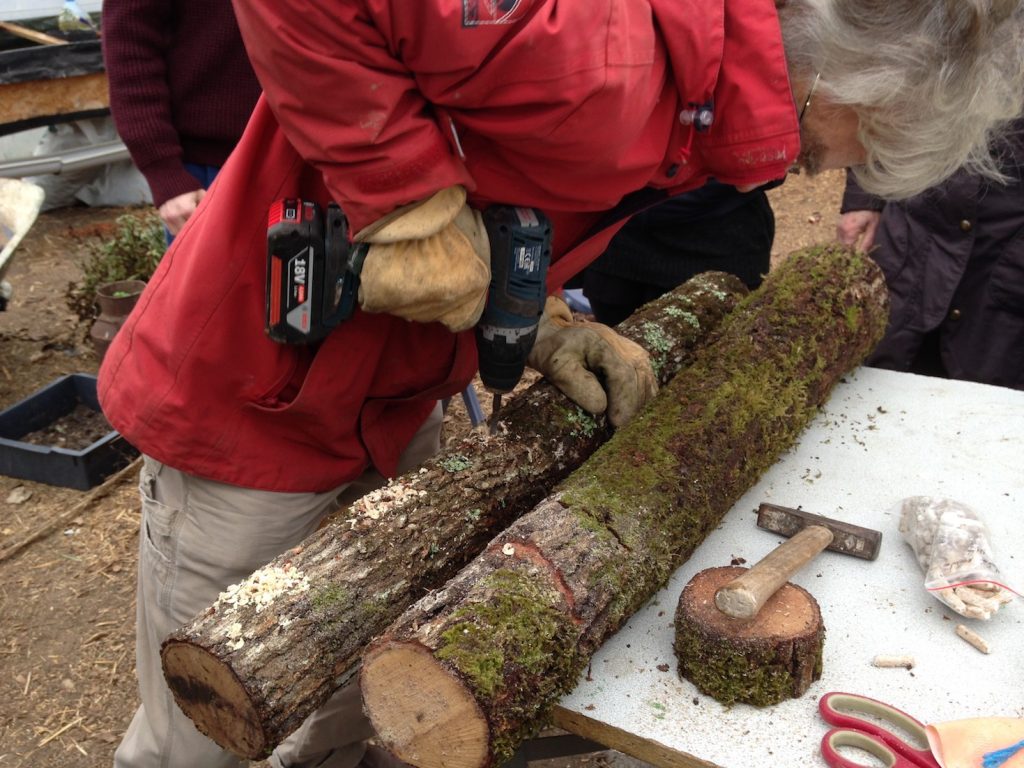
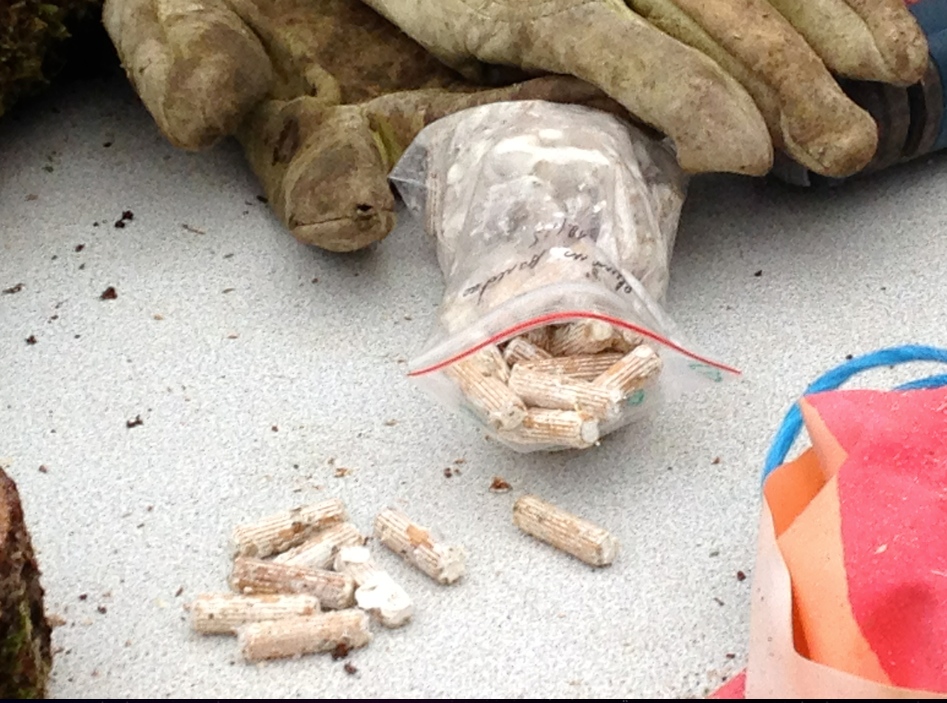

make natural soaps and shampoos; build a water purifying station in your garden; join a walk to learn to identify the medicinal and edible plants in local prairies;
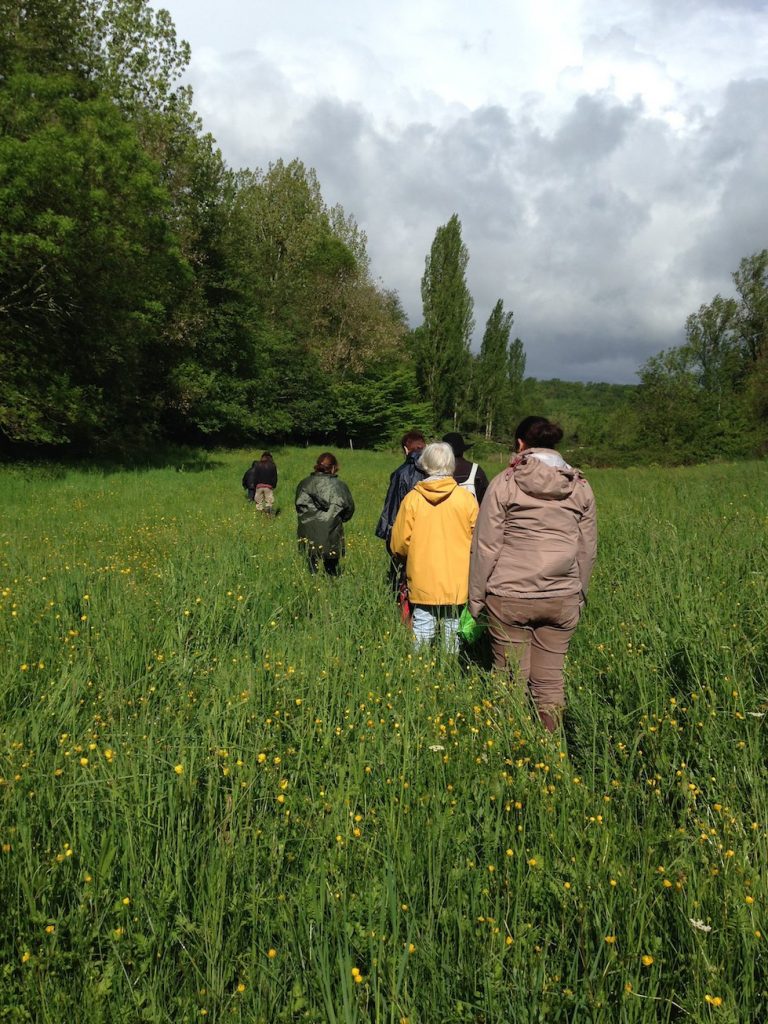

learn to prepare lacto fermented vegetables (remember sauerkraut?) with a modern flair using almost any vegetable – leeks, beets, carrots – to help rebuild gut flora weakened by antibiotics and pesticides;

exchange heirloom varieties of seeds at the local “troc de graines”.
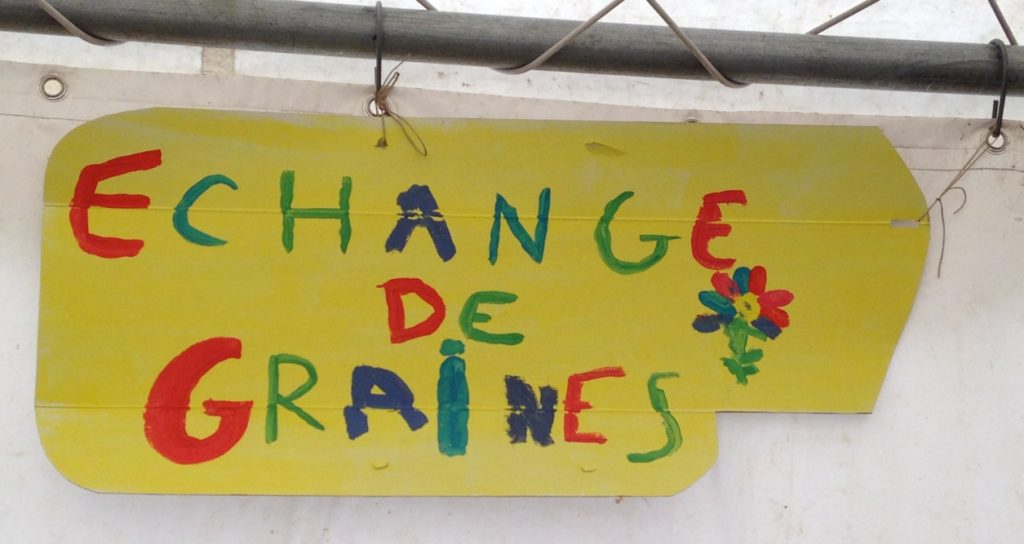
create a vegetable garden using raised mounds by permaculture principles:
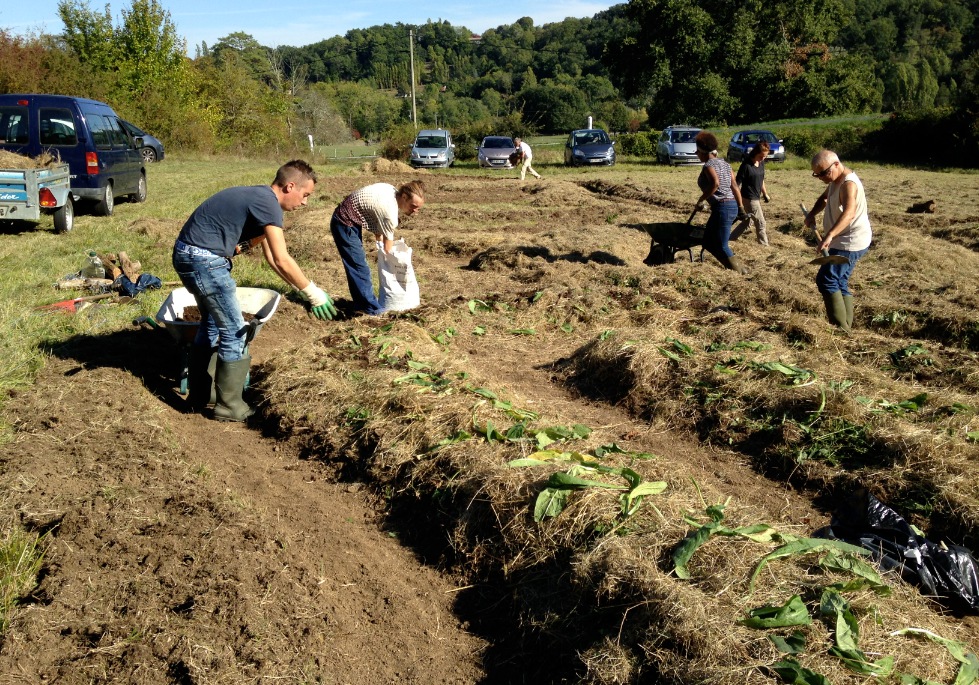
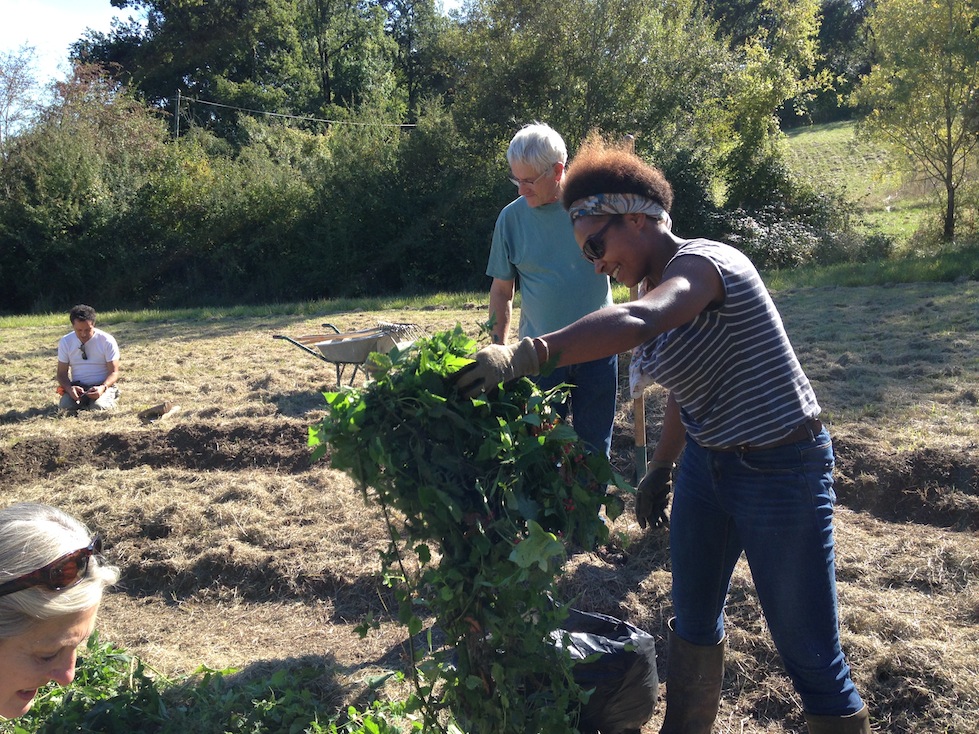
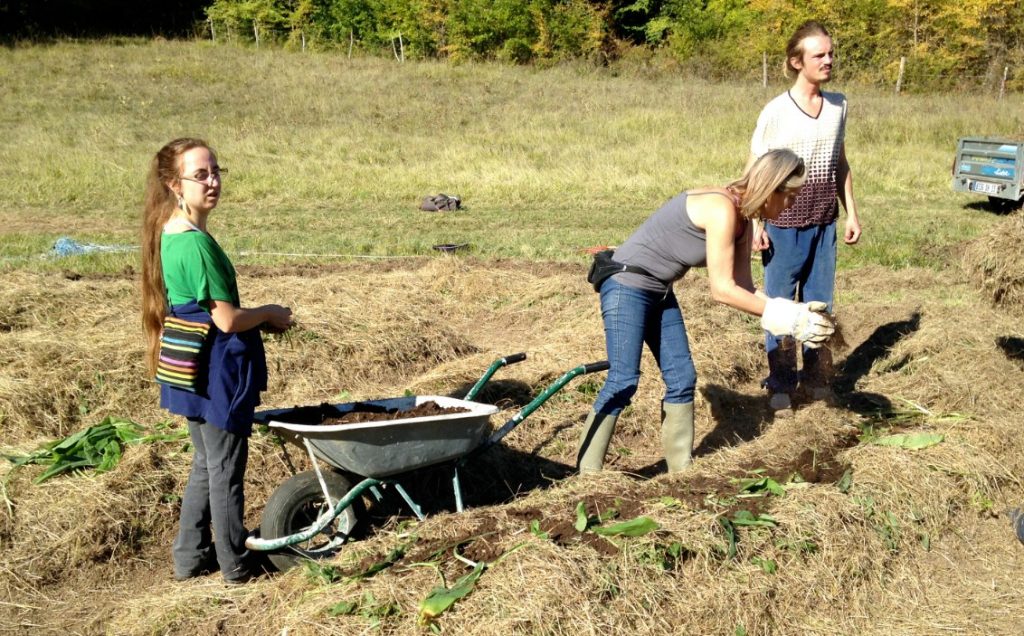
One of my favorites of the alliances locales, the “Université Populaire du Jardinage,” (UPoJ) was started by two brothers from Paris, one a biologist, the other a businessman, to create and teach natural alternatives to waste disposal for households and professionals (through methods of composting and “dry toilets”) and for natural water purification (phytopurification sites for gardens.) On their small farm they offer free monthly classes for a growing number of conscientious eco citizens – the kind of people who say, “yes, I’d like to do right, but would my little gesture really count? And anyway, I don’t know how.”
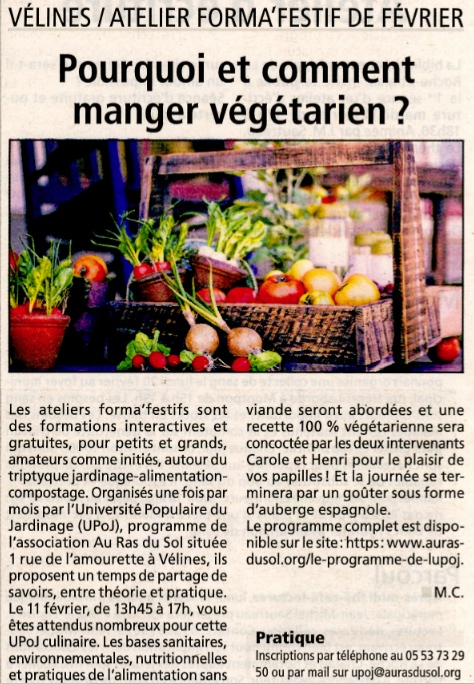
Thus page 10 of Le Resistant, with a write-up on Henri and Carol’s afternoon workshop on the principles and cooking of a vegetarian diet. Session one: the science – (question #1 “is it true that a plant based diet can offer all the protein a human body needs?) Session two: a cooking demo with dishes including lentils, chic peas, red beans and all manner of herbs, spices and vegetables… Session three: the very important convivial meal where “strangers” come together to talk, cook, share food. The “aha” moment: etymology of the word “companion” – (com = “with” + pan = “pain/bread) = Companion: “someone with whom you break bread.”
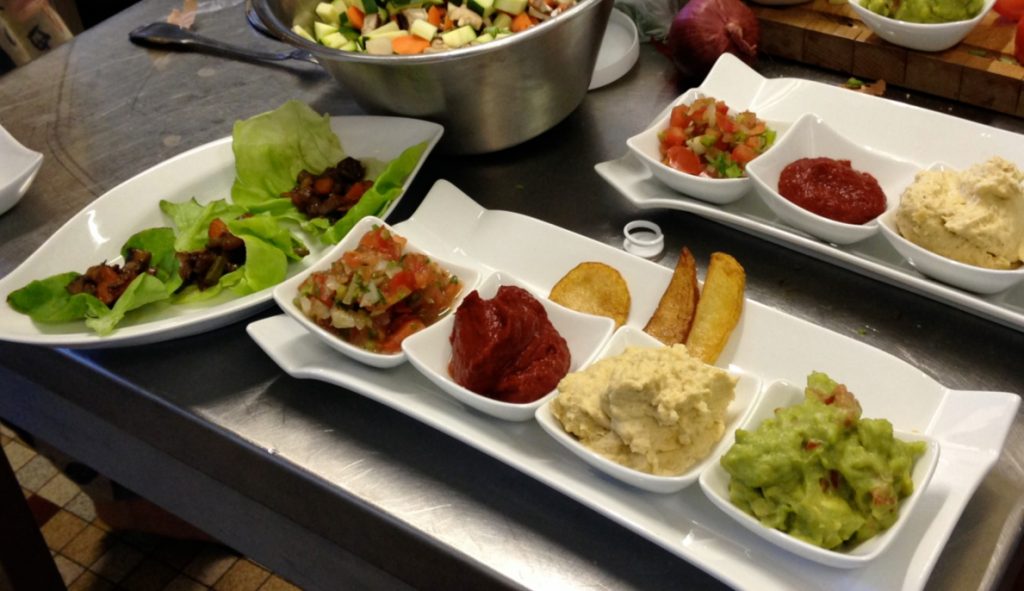
The demographic mix of these companions is startling – age, background, ethnicity. At the end of a session they talk about the need to meet people outside their usual circles. They say they’re weary of worrying at home alone, about issues beyond their power. Protest is important, but mostly they want to do.
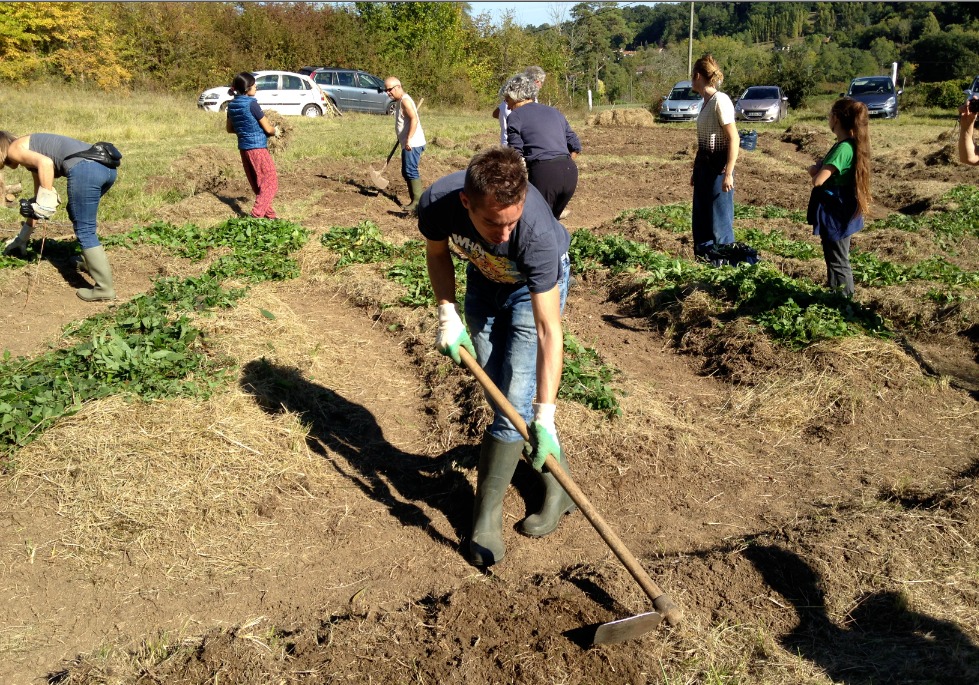
It’s as if the ghost of Montaigne (the 16th century philosopher and statesman, a native son from just down the road) has been scurrying all about, reminding people that if they can’t change the big world, they can change their own world: themselves, their families, their villages.
Resistance. In France, the word resistance implies a realm of legends – oppression, moral heft, courage, sacrifice, and sometimes – triumph. We still speak in revered tones of two of John’s ancestors who fought in the resistance in WWII. In fact, Le Resistant was founded in 1944 as a clandestine press – a literal call to action to resist the Occupation.
All around, you can feel something sprouting. Resisting pessimism, people are forging ties. Resisting powerlessness, people are creating alliances. Resisting entropy, people are finding companions, those with whom they can break bread and take action.
Last thought. In French, the word “alliance” is also the term for an engagement ring. The ring of – engagement.
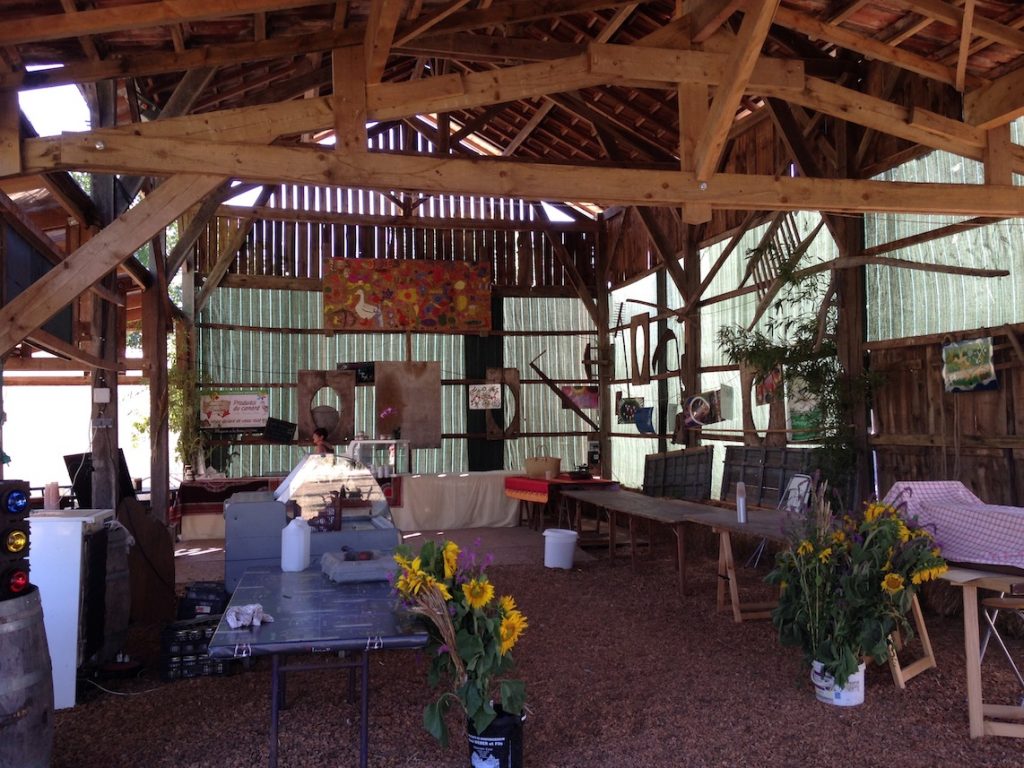
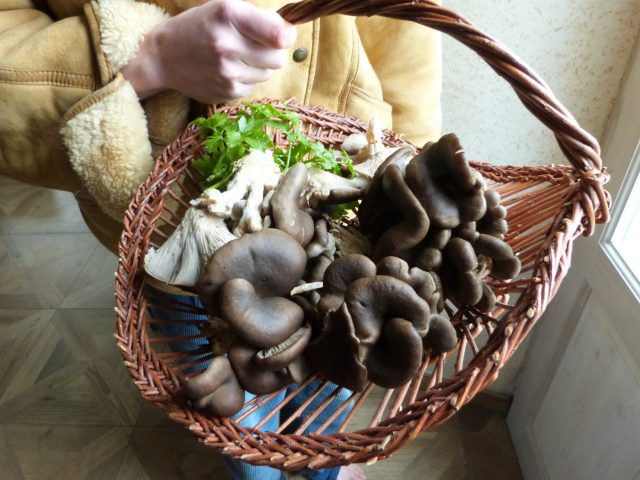
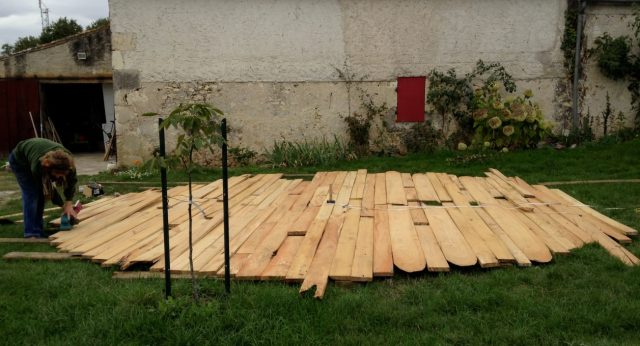

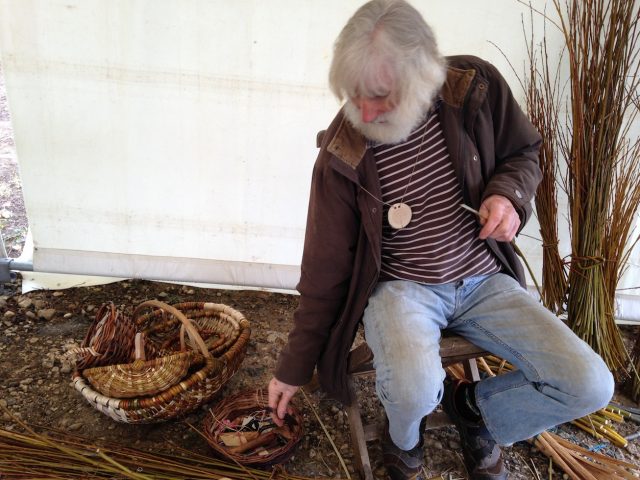
Save
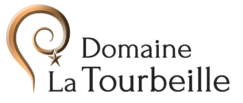
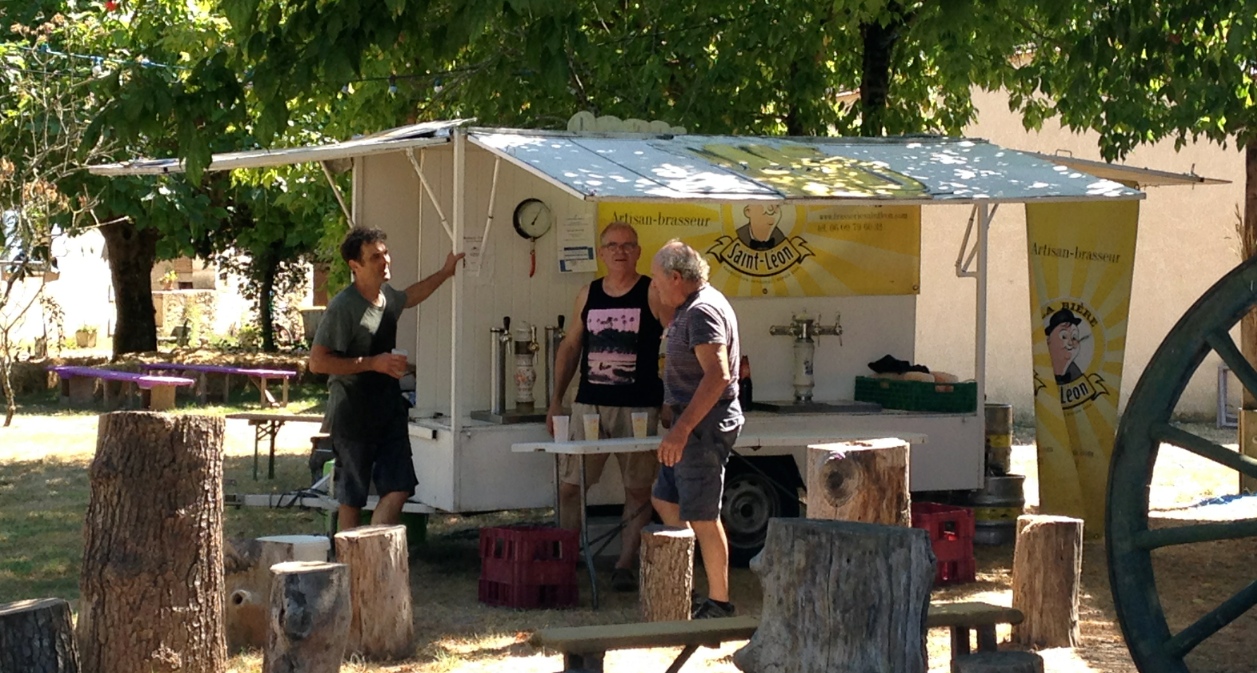
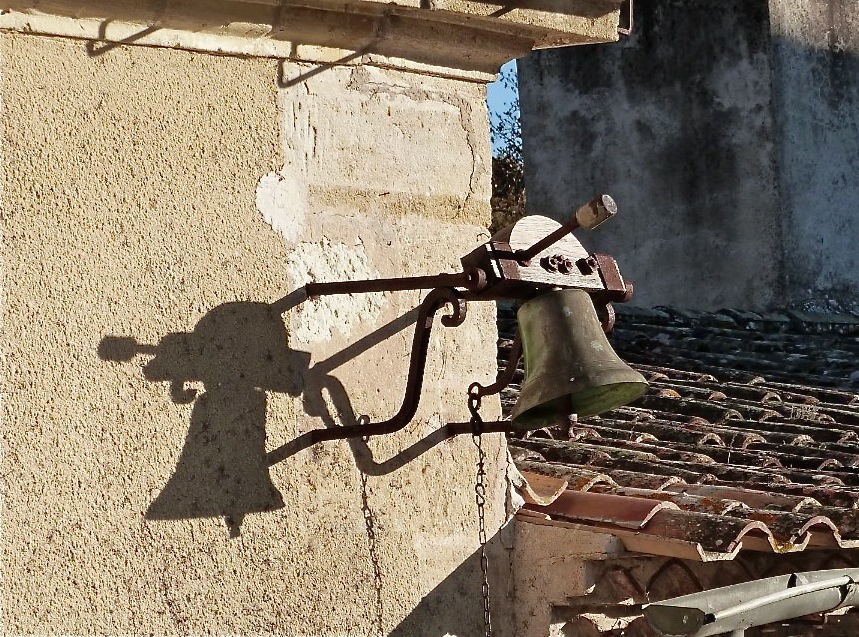
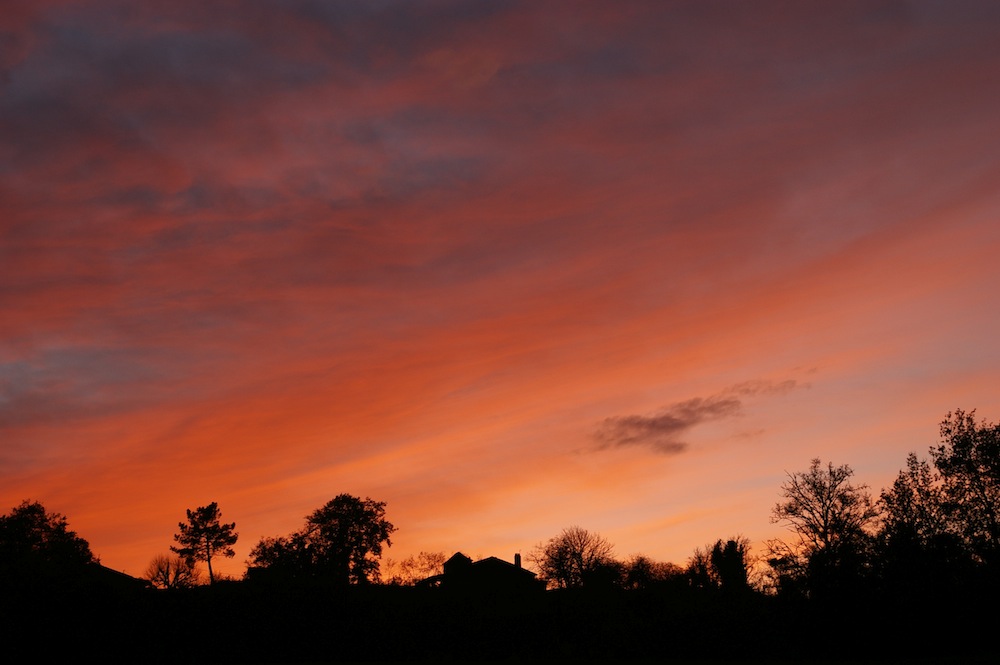
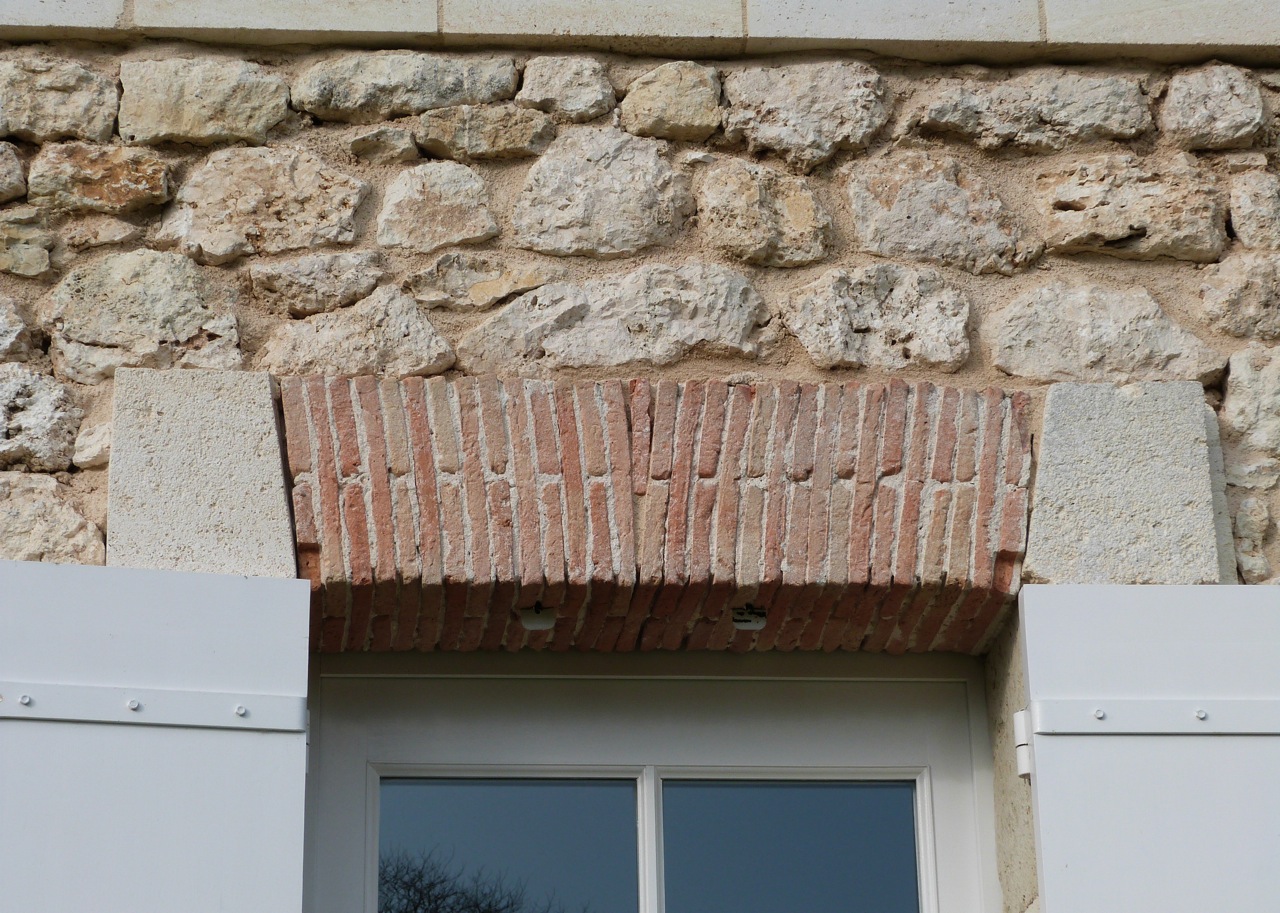

3 thoughts on “Resistance”
Dans mon journal de ce dimanche : MIRACLE
Dieu a dit : Je recommence.. dans un petit coin au-dessus de la Dordogne..;
Merci Mary, de faire passer cette nouvelle rédaction de La Genèse.
What a beautiful post. You capture so much of what is wonderful about France. Sometimes I lose track of these things, but these days they look pretty darn good.
Mary, once again you’ve shared a heartfelt and inspiring view into the life that is lived around your home at La Tourbeille. Thank you for this. It comes as a most welcome respite from the tempestuous news that so many of us in the United States cannot look away from, like passing slowly by a car wreck in the road, wanting so desperately to avert one’s eyes but unable to do so. What a gift it is for my imagination to wander down country roads in the Dordogne, looking through your eyes at the remarkable vitality and genuine “alliance” among neighbors there. One day in the not too distant future, I look forward to seeing it through my own eyes.